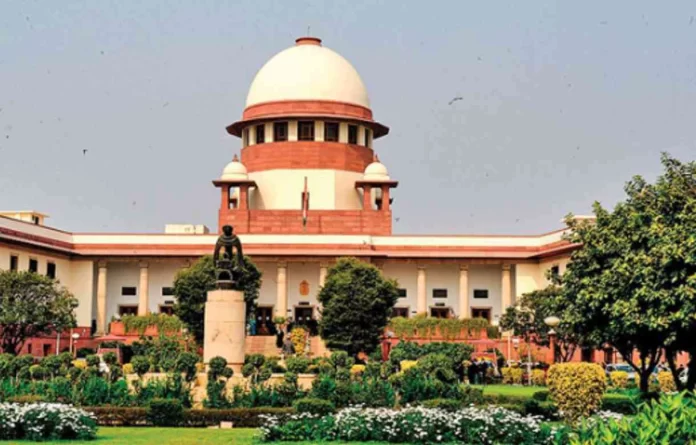The seven judge bench of the Supreme Court scheduled to hear pleas challenging validity of amendments to PMLA (Prevention of Money Laundering Act), Aadhaar Act passed as money bill since 2015 from January 30, 2024. A Supreme Court notification stated that the bench will be presided over by Chief Justice of India D Y Chandrachud.
Reports said that the original petition challenged the government role vis a vis running of tribunals. Following, a petition challenging the introduction of Aadhaar Act as money bill came to be listed before a five-judge bench which referred it to seven-judge bench. The matter concerns whether the government could use the money bill route to effect changes in PMLA and introduce the Aadhaar Act.
On January 30, the seven-judge bench is expected to pass directions on filing of written submissions, appointment of nodal counsels to compile digital copy of submissions and accompanying documents, and fix dates for arguments in the case. Reports stated that the bunch of 22 petitions on money bill chronologically stands at the fourth position in the list of six cases before the seven-judge bench. The money bill case arose in 2019.
The controversy before the apex court revolved around the interpretation and applicability of Article 110 of the Constitution, which defines a money bill. The provision notes that a money bill is a draft law that must deal only with matters specified in Article 110 (1)(a) to (g): taxation, borrowing by the government, and appropriation of money from the Consolidated Fund of India, among others. The provision further states that any other matter incidental to the subjects mentioned above, can also be classified as a money bill.
Reportedly, a money bill can be introduced only in the Lok Sabha and the Rajya Sabha cannot reject it. The petitioners have argued that many crucial legislation’s were classified as money bills to avoid unfavourable consequences in the Rajya Sabha where the government did not have majority.


